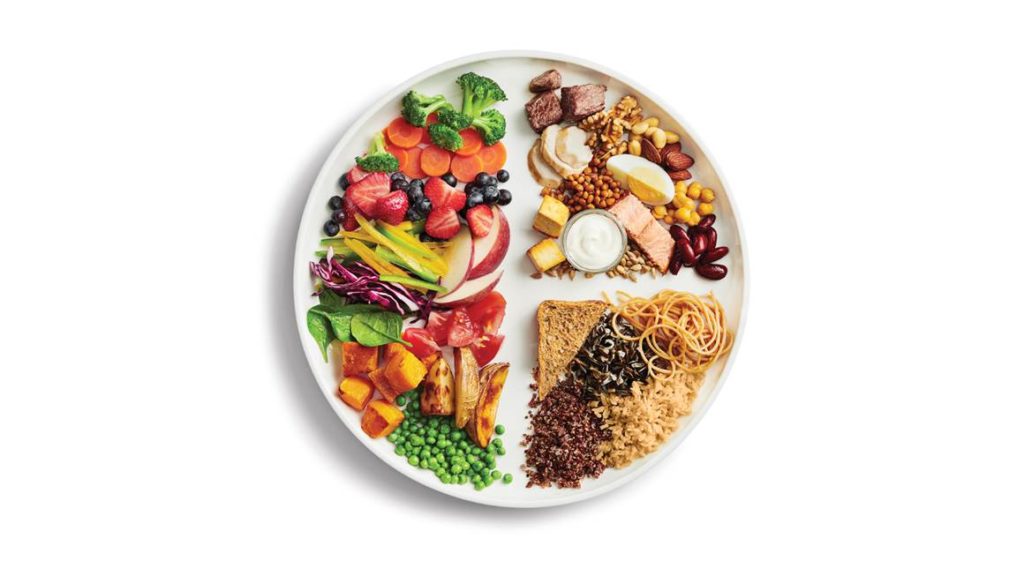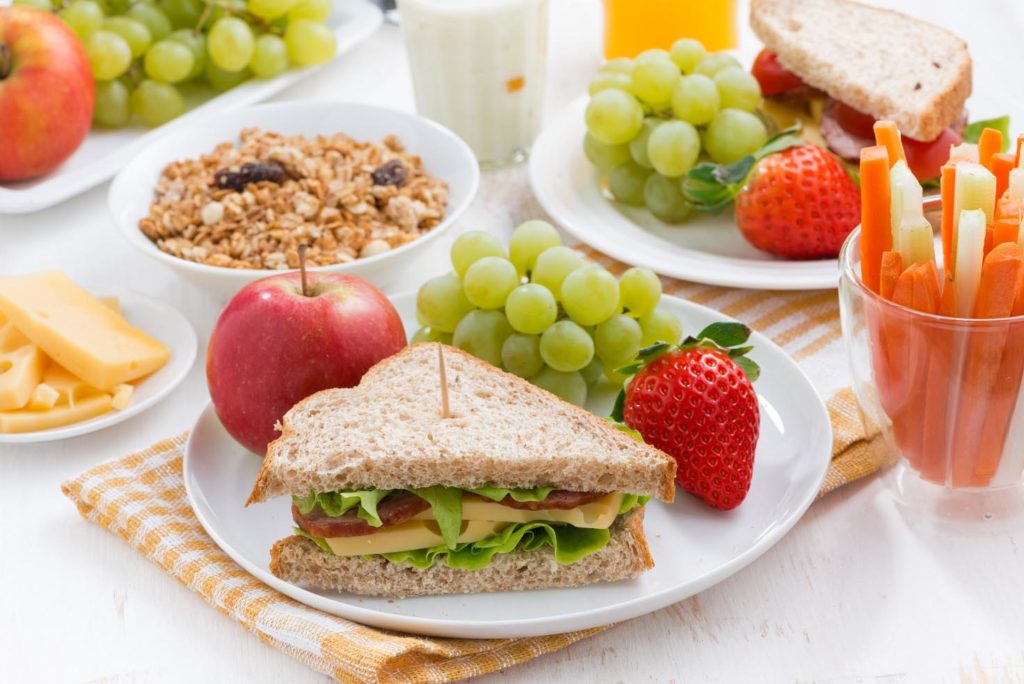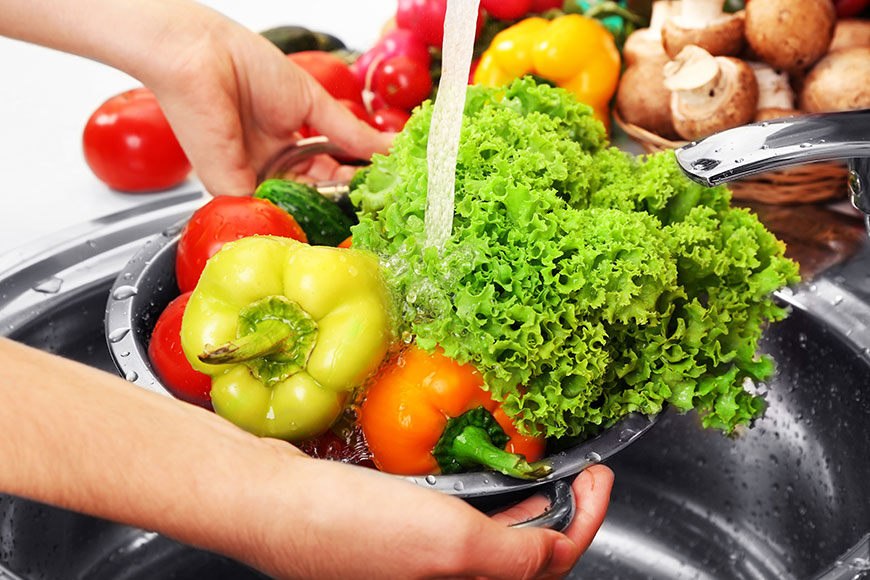With the ongoing pandemic and the enforced lockdown, many of us are increasingly concerned about maintaining healthy eating habits. And those of us under treatment for diabetes, hypertension, heart disease, kidney problems and other chronic conditions are likely to be more anxious about staying safe and healthy during these uncertain times. As a dietician, I can reassure you that eating a healthy diet is the most important thing to keep all our parameters under control while staying home. Taking care of our heart health begins with getting the concept of healthy nutrition right!
Ideal nutrition not only has an effect on our physical health but it also affects our mental health. We need to figure out how to eat in order to keep our immunity intact, how to manage healthy meals with limited ingredients on hand, how to cook when some of us may not be very experienced cooks and also how to be disciplined about our diet and health goals.
Purchasing and storing fresh fruits and vegetables can be challenging during lockdown. But whenever available, it is important to include adequate fruits and vegetables in your daily diet.

Tips to eat healthy during lockdown
- We can store dried goods like beans, pulses and grains such as lentils, peas and legumes for longer periods of time. They are nutritious as well as affordable. Include dhal, sprouts or sundal in your everyday cooking
- Include dried fruits, nuts, rice flakes and puffed rice instead of biscuits, chips and fried foods
- Limit the intake of highly processed drinks, snacks and ready-to-eat meals
- Try to avoid high fat, high salt foods like pastries, pre-cooked and packaged foods
- B vitamins are present in green leafy vegetables, beans, eggs, poultry and fish
- Eat a good source of protein every day (e.g. fish, meat, eggs, nuts, beans, tofu)
- Consume 2 servings of dairy every day (e.g. milk, cheese, yoghurt or dairy alternatives such as soya milk)
- Eat at least five portions of fruits and veggies every day
- Boredom may lead to mindless snacking on unhealthy foods; so make a daily plan to keep yourself busy and follow it
- Limit the intake of added sugar in the form of sweet beverages and desserts
- Include anti bacterial and anti microbial foods to improve immunity level, eg: turmeric, lemon, ginger, garlic, green tea
- Try to minimize consumption of coffee and tea, especially during this lockdown, as this can help you sleep and focus better
- As we are spending more time inside than ever before, and many of us do not have access to an outdoor space, vitamin D deficiency is common; sunlight is the best source of vitamin D and the morning and late afternoon hours are ideal for some sun exposure in your garden, terrace etc.; a daily supplement of Vitamin D or fortified foods can be consumed if sun exposure is not possible
Eat a balanced diet
Eating a well balanced diet with plenty of fruits and vegetables, wholegrains, plant (pulses and legumes) and animal proteins (lean meat, fish,poultry, eggs) and healthy fats (nuts and oil seeds) is the best option to getall the essential nutrients for good health and optimal immune function.
Eat plenty of fruits and vegetables
Fruits and vegetables are the most important foods for supplying our dailyrequirement of vitamins, minerals and fiber. We should aim to eat 5 portionsof fruits and vegetables every day. Different colored fruits and vegetables provide phytochemicals and antioxidants, which are essential forgood health.
Stay hydrated
Keeping hydrated is essential for overall health. We can add watery fruitsand vegetables (bottle guard, pumpkin, cucumber, muskmelon, watermelonetc.) to maintain fluid level in the body. Try to consume as whole fruits insteadof fruit juices.
Get enough sleep
Adequate sleep is as important as a healthy diet. Make sure you get the recommended 6-8 hours of good quality sleep every night.
Keep healthy snacks around
Keeping healthy and nutritious snacks nearby will ensure you don’t head straight to the fried, baked and preserved foods.
e.g. Nuts and dried fruits, sprouts or sundal, fruits, vegetable salads, soups, smoothies, butter milk, tender coconut water, seasonal fruits
Practice personal and food hygiene
Good hygiene is important when handling food to prevent the spread of virus. Wash your hands thoroughly with soap and water before preparing food. Wash unpacked products of fruits and vegetables thoroughly under running water.
In conclusion, eating a healthy diet should be a priority at this time. Make sure you shop smartly for the essential ingredients; take adequate preventive measures before stepping out, during shopping and after returning home with the products. Following personal hygiene measures and maintaining social distance remain the best means of avoiding infection. There are lots of different nutrients that are involved with the normal functioning of the immune system. So, we would encourage maintaining a healthy balanced diet in order to support the body’s immune function. In addition to exercising regularly and quitting smoking and drinking, maintaining a healthy diet plays a crucial role in preserving our physical health and emotional wellness.
A positive attitude, adequate nutrition and regular exercise are a great way to offset the anxiety, worries and uncertainties during this quarantine period. If you or your loved ones have any special dietary requirements or disease condition and would like professional advice on how to eat healthy during this pandemic, please feel free to email me on tharani@cardiacwellnessinstitute.com.


